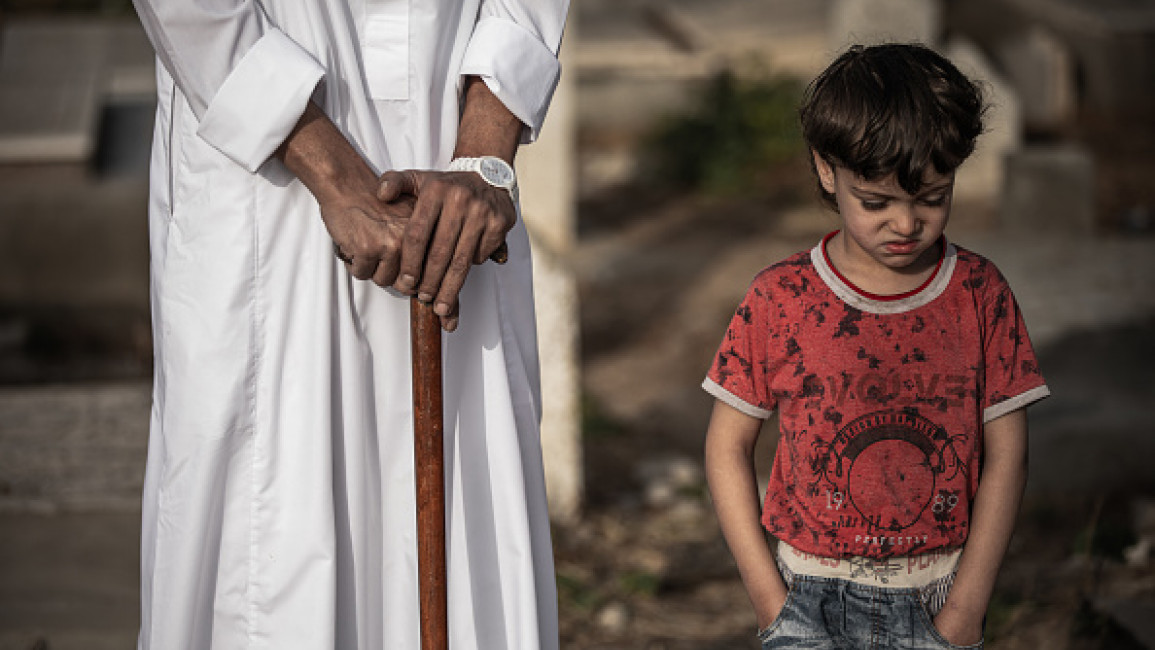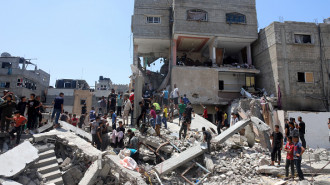UNRWA warns of 'famine' in Gaza in coming months if funding crisis continues
On Monday, 31 July, the United Nations Relief and Works Agency for Palestine Refugees (UNRWA) warned that a "real famine" could hit the Gaza Strip if its financial crisis continues and donor countries make further funding cuts.
"About 1.2 million Palestinian refugees in the Gaza Strip receive food and financial aid from UNRWA on a regular basis, including about 800,000 refugees who cannot provide two meals a day," Adnan Abu Hasna, UNRWA's media advisor, said to The New Arab.
"There is a high possibility that the aid provided to the refugees would stop in light of the cuts that affected all international organisations, including the World Food Programme, which means that a real famine will be witnessed by the residents of the Gaza Strip during the coming months," Abu Hasna added.
"We are facing three dangerous months, from September to December, when we will not be able to pay salaries, programs and services may be affected, and there will be serious effects on regional stability in the region," he said.
He stressed that the situation in the Gaza Strip is "extremely dangerous" due to the difficult conditions that its residents have been living through for years.
He further said that his agency had informed the world that it "urgently needs US$70 million in order to purchase foodstuffs for the local population in the Strip to avoid further humanitarian disasters in the region."
Moreover, according to Abu Hasna, "We need another US$30 million to distribute cash assistance to Palestinian refugees in both Lebanon and Syria."
To alleviate the financial crisis in UNRWA, Abu Hasna explained that his organisation is working hard to include Arab countries in donating to the UNRWA budget, which has declined by 90 percent from 2018.
About 2.3 million Palestinians live in the Gaza Strip that has been besieged by Israel since 2007, including 80 percent of the Palestinian refugees who were displaced from their original towns in 1948 after Israel took control of it and established its state.
UNRWA was established as a United Nations agency by a decision of the General Assembly in 1949, and it was mandated to provide assistance and protection to Palestine refugees registered with it in the agency's fields of operations, namely the West Bank, which includes East Jerusalem, Gaza, Jordan, Lebanon and Syria, until a just and lasting solution to their plight is reached.
UNRWA helps refugees realise their full potential in human development through the qualitative services it provides in the areas of education, health care, relief and social services, protection and camp infrastructure and improvement, microfinance and emergency aid.
UNRWA is funded almost entirely by voluntary donations. However, both the United States of America and Israel believe that UNRWA no longer has any reason to remain in its current form, especially since they reject the fact that Palestinians can transfer refugee status to their children, as confirmed by Israeli reports.
The administration of former US President Donald Trump had suspended US$360 million in financial aid from UNRWA, but John Biden's administration resumed its assistance after he assumed the presidency of the United States of America.
However, according to Abu Hasna, some important donor countries have reported that they will reduce their financial aid in the coming years, stressing that what is happening on the ground is weakening UNRWA, which serves about 5.9 million Palestinian refugees.
"UNRWA has become more vulnerable to political changes in donor countries. For example, when Republicans and extreme right-wingers come to power, grants and financial aid to UNRWA are threatened with cessation, and if the Democrats arrive, that aid may be resumed again," he said.
"We have formally addressed the donors and informed them that in the event of any shake-up or collapse in UNRWA's operations, it will have catastrophic consequences for the countries hosting the refugees, and there is a danger to regional stability," wondering, "Can the donor countries receive new immigrants?" he added.
He noted that the survival of UNRWA depends on finding a just solution for the Palestinian refugees, and that the world is responsible for finding real and radical solutions to the recurring financial crises that the UN agency has been suffering from for years.



